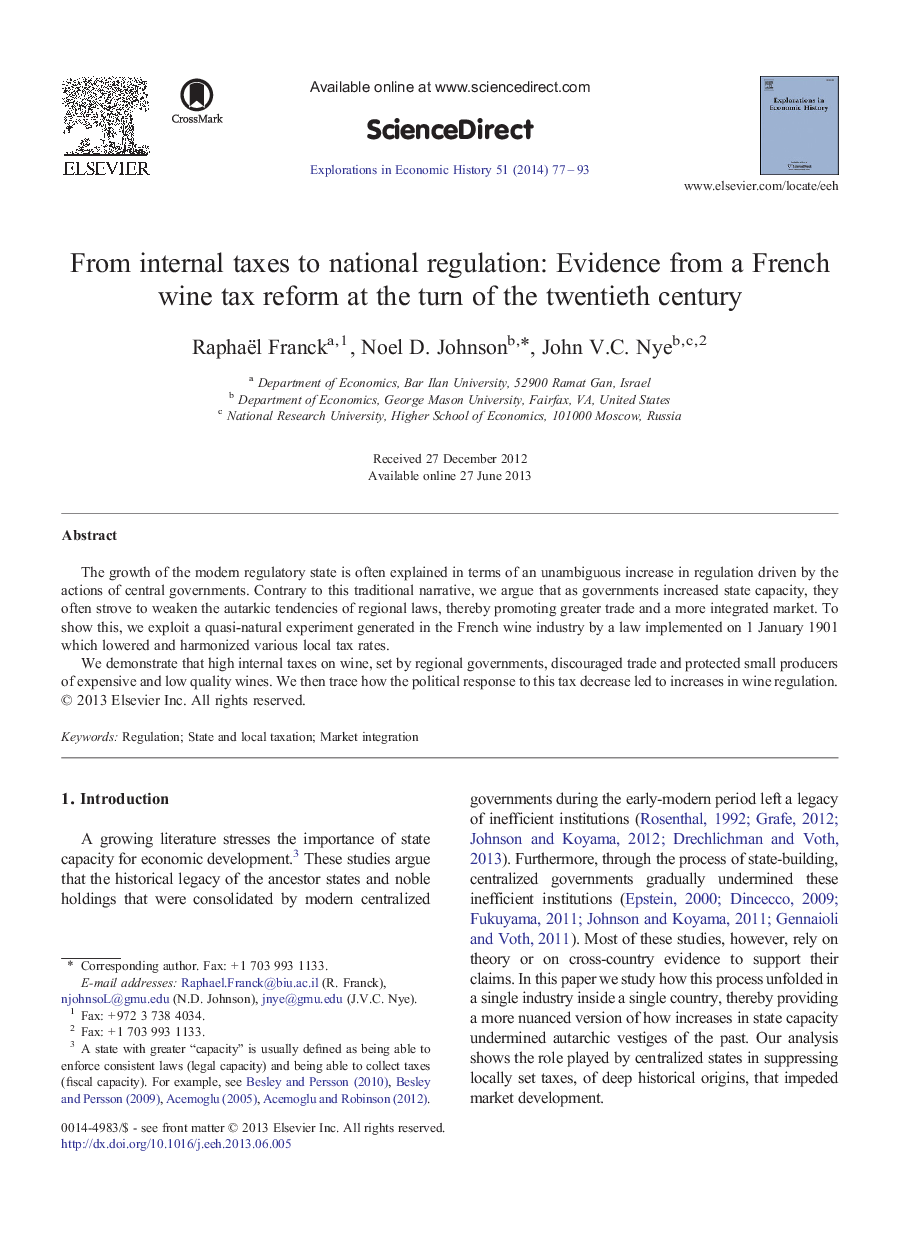| Article ID | Journal | Published Year | Pages | File Type |
|---|---|---|---|---|
| 5068749 | Explorations in Economic History | 2014 | 17 Pages |
The growth of the modern regulatory state is often explained in terms of an unambiguous increase in regulation driven by the actions of central governments. Contrary to this traditional narrative, we argue that as governments increased state capacity, they often strove to weaken the autarkic tendencies of regional laws, thereby promoting greater trade and a more integrated market. To show this, we exploit a quasi-natural experiment generated in the French wine industry by a law implemented on 1 January 1901 which lowered and harmonized various local tax rates.We demonstrate that high internal taxes on wine, set by regional governments, discouraged trade and protected small producers of expensive and low quality wines. We then trace how the political response to this tax decrease led to increases in wine regulation.
